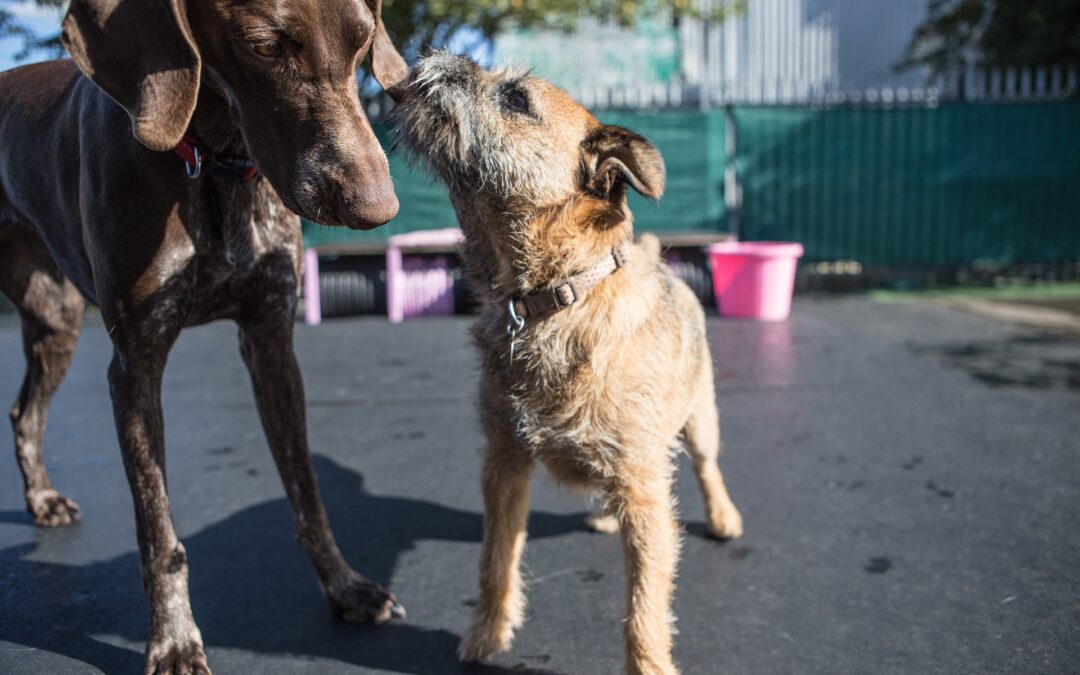Doggie daycare is a common luxury for many dogs. Pet owners who feel guilty that their dogs spend all day at home send their pets to what appears to be doggie heaven. At many day cares, dogs are off-leash and allowed to play non-stop with all of their canine friends. What could go wrong?
Unfortunately, there are many problems with this setup that well-meaning dog owners should be made aware of. In this three part series the problems with doggy care care will be discussed.
Training Regression
Many pet owners are surprised to find that their well-trained dogs begin to regress in their training after visits to doggy day care. In a perfect world, obedience commands would be reinforced; however, day cares are often a free-for-all, where the supervisor’s job is simply to ensure no dogs are seriously injured. This means that your dog is often able to get away with behaviors that would not be tolerated at home. In fact, many of those negative behaviors are even reinforced at day care. Since a large portion of dog training relies on consistency, doggie day cares directly contribute to training issues at home.
Potty Training Regression
Additionally, many pet owners find that their dogs develop potty training regression as a result of doggie day care. If your dog is accustomed to urinating on grass, it can be confusing to urinate on new surfaces, such as concrete, artificial turf, or carpeting. Watching other dogs potty indoors can lead your pet to mimic the behavior, as well.
Lack of Structure
If you have ever found the dog park overwhelming or anxiety-inducing due to the lack of structured play and instead a large pack of animals chasing one another, doggie day care is not for your pet. Safe canine play requires structure and a trained eye for recognizing canine body language. The free-for-all that is represented at most day care facilities not only creates bad habits in your pet, but results in an unsafe atmosphere.
Limited Criteria for Enrollment
Many doggie day cares have no selection process, which can be a recipe for disaster. Dogs with strong prey drives, resource aggression, or anxiety are given the opportunity to play in close quarters with dogs of similar personality. When volume (and profits) are more valued than the creation of a safe and enriching atmosphere, dangerous situations such as dog fights can arise.
Poor Alternative to Socialization
Doggie day cares are typically advertised as the perfect solution to your socialization needs. However, proper socialization requires both positive and negative reinforcement for good and bad behaviors. At doggy day care, your pet is simply exposed to a variety of animals and situations with no correction for unwanted behaviors. Instead of day care, structured training, dog walking, and boarding are the safer alternative to this all too common practice.


Recent Comments